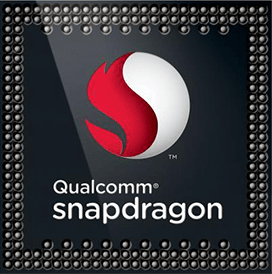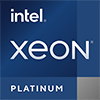
Qualcomm Snapdragon 888+ Benchmark, Test and specs
Last updated:
The Qualcomm Snapdragon 888+ is a 8 core processor. It can process 8 threads concurrently and is based on the 8. gen of the Qualcomm Snapdragon series. The processor was released in Q3/2021. The Qualcomm Snapdragon 888+ scores 1,123 points with one CPU core in the Geekbench 5 benchmark. When using all CPU cores, the result is 3,524 points.

| Name: | Qualcomm Snapdragon 888+ |
|---|---|
| Family: | Qualcomm Snapdragon (102) |
| CPU group: | Qualcomm Snapdragon 888 (2) |
| Architecture: | Kryo 680 |
| Segment: | Mobile |
| Generation: | 8 |
| Predecessor: | -- |
| Successor: | -- |
CPU Cores and Base Frequency
The 8 CPU cores of the Qualcomm Snapdragon 888+ clock with 3.00 GHz. The number of CPU cores and the clock frequency of the processor are largely responsible for the overall performance.
| CPU Cores / Threads: | 8 / 8 |
|---|---|
| Core architecture: | hybrid (Prime / big.LITTLE) |
| A-Core: | 1x Kryo 680 Prime |
| B-Core: | 3x Kryo 680 Gold |
| C-Core: | 4x Kryo 680 Silver |
| Hyperthreading / SMT: | No |
|---|---|
| Overclocking: | No |
| A-Core Frequency: | 3.00 GHz |
| B-Core Frequency: | 1.80 GHz |
| C-Core Frequency: | -- |
Artificial Intelligence and Machine Learning
Processors with the support of artificial intelligence (AI) and machine learning (ML) can process many calculations, especially audio, image and video processing, much faster than classic processors. Algorithms for ML improve their performance the more data they have collected via software. ML tasks can be processed up to 10,000 times faster than with a classic processor.
| AI hardware: | Qualcomm AI engine |
|---|---|
| AI specifications: | Hexagon 780 @ 32 TOPS |
Internal Graphics
With the Qualcomm Adreno 660 AV1, the Qualcomm Snapdragon 888+ has an build in graphic solution. It has -- SM processors, which have a total of -- texture shaders. The iGPU not only enables games, but also significantly accelerates video playback.
| GPU name: | Qualcomm Adreno 660 AV1 |
|---|---|
| GPU frequency: | 0.84 GHz |
| GPU (Turbo): | No turbo |
| Compute units: | -- |
| Shader: | -- |
| Hardware Raytracing: | No |
| Release date: | Q1/2021 |
| Max. displays: | 0 |
|---|---|
| Generation: | 6 |
| Direct X: | 12.1 |
| Technology: | 5 nm |
| Max. GPU Memory: | -- |
| Frame Generation: | No |
Hardware codec support
Processors that have an integrated graphics can play videos faster and more efficiently. This can have a positive effect on the battery life of notebooks, for example.
| h265 / HEVC (8 bit): | Decode / Encode |
|---|---|
| h265 / HEVC (10 bit): | Decode / Encode |
| h264: | Decode / Encode |
| VP8: | Decode / Encode |
| VP9: | Decode / Encode |
| AV1: | Decode |
|---|---|
| AVC: | Decode |
| VC-1: | Decode |
| JPEG: | Decode / Encode |
Memory & PCIeThe Qualcomm Snapdragon 888+ supports up to 16 GB memory in up to 4 (Quad Channel) memory channels. This results in a maximum memory bandwidth of 51.2 GB/s. |
|
| Memory type: | Memory bandwidth: |
|---|---|
| LPDDR5-6400 | 51.2 GB/s |
| Max. Memory: | 16 GB |
| Memory channels: | 4 (Quad Channel) |
| ECC: | No |
| PCIe: | |
| PCIe Bandwidth: | -- |
Thermal ManagementWith the TDP, the processor manufacturer specifies the cooling solution required for the processor. The Qualcomm Snapdragon 888+ has a TDP of . |
|
|---|---|
| TDP (PL1 / PBP): | |
| TDP (PL2): | -- |
| TDP up: | -- |
| TDP down: | -- |
| Tjunction max.: | -- |
Technical details
The Qualcomm Snapdragon 888+ has a 8.00 MB large cache. The processor is manufactured in 5 nm. Modern production increases the efficiency of the processor.
| Technology: | 5 nm |
|---|---|
| Chip design: | Chiplet |
| Socket: | -- |
| L2-Cache: | 4.00 MB |
| L3-Cache: | 4.00 MB |
| AES-NI: | No |
| Operating systems: | Android |
| Virtualization: | None |
|---|---|
| Instruction set (ISA): | Armv8-A (64 bit) |
| ISA extensions: | -- |
| Release date: | Q3/2021 |
| Release price: | -- |
| Part Number: | SM8350-AC |
| Documents: | Technical data sheet |
Rate this processor
Benchmark results

The benchmark results for the Qualcomm Snapdragon 888+ have been carefully checked by us. We only publish benchmark results that have been created by us or that have been submitted by a visitor and then checked by a team member. All results are based on and fullfill our benchmark guidelines.
Geekbench 5, 64bit (Single-Core)
Geekbench 5 is a cross plattform benchmark that heavily uses the systems memory. A fast memory will push the result a lot. The single-core test only uses one CPU core, the amount of cores or hyperthreading ability doesn't count.

|
Apple A12Z Bionic
8C 8T @ 2.49 GHz |
||

|
Intel Core i9-8950HK
6C 12T @ 4.80 GHz |
||

|
Intel Xeon Gold 6210U
20C 40T @ 3.90 GHz |
||
|
|
Qualcomm Snapdragon 888+
8C 8T @ 3.00 GHz |
||

|
AMD Ryzen 7 4700S
8C 16T @ 4.00 GHz |
||

|
Intel Core i9-9820X
10C 20T @ 4.20 GHz |
||

|
Intel Core i9-7980XE
18C 36T @ 4.20 GHz |
||
Geekbench 5, 64bit (Multi-Core)
Geekbench 5 is a cross plattform benchmark that heavily uses the systems memory. A fast memory will push the result a lot. The multi-core test involves all CPU cores and taks a big advantage of hyperthreading.

|
Intel Core i5-8400H
4C 8T @ 3.70 GHz |
||

|
Intel Xeon W-2104
4C 4T @ 3.20 GHz |
||

|
Intel Xeon E3-1225 v5
4C 4T @ 3.50 GHz |
||
|
|
Qualcomm Snapdragon 888+
8C 8T @ 3.00 GHz |
||

|
Intel Xeon E5-1620 v2
4C 8T @ 3.90 GHz |
||

|
AMD Ryzen Embedded V1807B
4C 8T @ 3.35 GHz |
||

|
Intel Core i7-6820EQ
4C 8T @ 2.80 GHz |
||
Geekbench 6 (Single-Core)
Geekbench 6 is a benchmark for modern computers, notebooks and smartphones. What is new is an optimized utilization of newer CPU architectures, e.g. based on the big.LITTLE concept and combining CPU cores of different sizes. The single-core benchmark only evaluates the performance of the fastest CPU core, the number of CPU cores in a processor is irrelevant here.

|
Intel Xeon Gold 6148
20C 40T @ 3.70 GHz |
||

|
Intel Xeon Platinum 8180M
28C 56T @ 3.80 GHz |
||

|
Intel Core i7-7600U
2C 4T @ 3.90 GHz |
||
|
|
Qualcomm Snapdragon 888+
8C 8T @ 3.00 GHz |
||

|
AMD Ryzen 7 PRO 4750G
8C 16T @ 4.40 GHz |
||

|
Intel Xeon Platinum 8168
24C 48T @ 3.70 GHz |
||

|
Qualcomm Snapdragon 865+
8C 8T @ 3.10 GHz |
||
Geekbench 6 (Multi-Core)
Geekbench 6 is a benchmark for modern computers, notebooks and smartphones. What is new is an optimized utilization of newer CPU architectures, e.g. based on the big.LITTLE concept and combining CPU cores of different sizes. The multi-core benchmark evaluates the performance of all of the processor's CPU cores. Virtual thread improvements such as AMD SMT or Intel's Hyper-Threading have a positive impact on the benchmark result.

|
Intel Core i3-9100T
4C 4T @ 3.40 GHz |
||

|
Intel Xeon E3-1226 v3
4C 4T @ 3.30 GHz |
||

|
Intel Core i7-4700HQ
4C 8T @ 3.00 GHz |
||
|
|
Qualcomm Snapdragon 888+
8C 8T @ 3.00 GHz |
||

|
Intel Xeon E5-1660 v2
6C 12T @ 3.80 GHz |
||

|
Intel Core i7-8550U
4C 8T @ 2.40 GHz |
||

|
AMD Ryzen 5 PRO 3400GE
4C 8T @ 3.30 GHz |
||
iGPU - FP32 Performance (Single-precision GFLOPS)
The theoretical computing performance of the internal graphics unit of the processor with simple accuracy (32 bit) in GFLOPS. GFLOPS indicates how many billion floating point operations the iGPU can perform per second.

|
Intel Core i5-1250P
Intel Iris Xe Graphics 80 (Alder Lake) @ 1.40 GHz |
||

|
Intel Core i5-12600H
Intel Iris Xe Graphics 80 (Alder Lake) @ 1.40 GHz |
||

|
Intel Core i5-13600HE
Intel Iris Xe Graphics 80 (Alder Lake) @ 1.40 GHz |
||
|
|
Qualcomm Snapdragon 888+
Qualcomm Adreno 660 AV1 @ 0.84 GHz |
||

|
Qualcomm Snapdragon 888
Qualcomm Adreno 660 @ 0.84 GHz |
||

|
Apple A15 Bionic (5-GPU)
Apple A15 (5 GPU Cores) @ 1.34 GHz |
||

|
AMD Ryzen 5 5600GT
AMD Radeon RX Vega 7 (Renoir) @ 1.90 GHz |
||
AnTuTu 9 Benchmark
The AnTuTu 9 benchmark is very well suited to measuring the performance of a smartphone. AnTuTu 9 is quite heavy on 3D graphics and can now also use the "Metal" graphics interface. In AnTuTu, memory and UX (user experience) are also tested by simulating browser and app usage. AnTuTu version 9 can compare any ARM CPU running on Android or iOS. Devices may not be directly comparable when benchmarked on different operating systems.
In the AnTuTu 9 benchmark, the single-core performance of a processor is only slightly weighted. The rating is made up of the multi-core performance of the processor, the speed of the working memory, and the performance of the internal graphics.
In the AnTuTu 9 benchmark, the single-core performance of a processor is only slightly weighted. The rating is made up of the multi-core performance of the processor, the speed of the working memory, and the performance of the internal graphics.

|
Apple A16 Bionic
6C 6T @ 3.46 GHz |
||

|
Samsung Exynos 2200
8C 8T @ 2.80 GHz |
||

|
Google Tensor G3
8C 8T @ 2.91 GHz |
||
|
|
Qualcomm Snapdragon 888+
8C 8T @ 3.00 GHz |
||

|
Apple A15 Bionic (5-GPU)
6C 6T @ 3.23 GHz |
||

|
MediaTek Dimensity 8000
8C 8T @ 2.75 GHz |
||

|
Qualcomm Snapdragon 888
8C 8T @ 2.84 GHz |
||
AnTuTu 8 Benchmark
The AnTuTu 8 Benchmark measures the performance of a SoC. AnTuTu benchmarks the CPU, GPU, Memory as well as the UX (User Experience) by simulating browser and app usage. AnTuTu can benchmark any ARM CPU that runs under Android or iOS. Devices may not be directly compareable if the benchmark has been performed under different operating systems.
In the AnTuTu 8 benchmark, the single-core performance of a processor is only slightly weighted. The evaluation consists of the multi-core performance of the processor, the speed of the RAM and the performance of the internal graphics.
In the AnTuTu 8 benchmark, the single-core performance of a processor is only slightly weighted. The evaluation consists of the multi-core performance of the processor, the speed of the RAM and the performance of the internal graphics.

|
Apple A12Z Bionic
8C 8T @ 2.49 GHz |
||

|
Qualcomm Snapdragon 888
8C 8T @ 2.84 GHz |
||

|
Apple A12X Bionic
8C 8T @ 2.49 GHz |
||
|
|
Qualcomm Snapdragon 888+
8C 8T @ 3.00 GHz |
||

|
Samsung Exynos 1080
8C 8T @ 2.80 GHz |
||
|
|
HiSilicon Kirin 9000
8C 8T @ 3.13 GHz |
||

|
Qualcomm Snapdragon 870
8C 8T @ 3.20 GHz |
||
Estimated results for PassMark CPU Mark
Some of the CPUs listed below have been benchmarked by CPU-monkey. However the majority of CPUs have not been tested and the results have been estimated by a CPU-monkey’s secret proprietary formula. As such they do not accurately reflect the actual Passmark CPU mark values and are not endorsed by PassMark Software Pty Ltd.

|
Intel Core i7-4770S
4C 8T @ 3.10 GHz |
||

|
AMD FX-8120
8C 8T @ 4.00 GHz |
||

|
Intel Core i5-7600
4C 4T @ 3.90 GHz |
||
|
|
Qualcomm Snapdragon 888+
8C 8T @ 3.00 GHz |
||

|
Intel Core i7-6700HQ
4C 8T @ 3.20 GHz |
||

|
Intel Core i7-970
6C 12T @ 3.20 GHz |
||

|
Intel Core i7-4770R
4C 8T @ 3.60 GHz |
||
Performance for Artificial Intelligence (AI) and Machine Learning (ML)
Processors with the support of artificial intelligence (AI) and machine learning (ML) can process many calculations, especially audio, image and video processing, much faster than classic processors. The performance is given in the number (trillions) of arithmetic operations per second (TOPS).

|
Apple M3
8C 8T @ 0.70 GHz |
||

|
Qualcomm Snapdragon 8 Gen 3
8C 8T @ 3.40 GHz |
||

|
MediaTek Dimensity 9300
8C 8T @ 3.25 GHz |
||
|
|
Qualcomm Snapdragon 888+
8C 8T @ 3.00 GHz |
||

|
Apple M2 Ultra (76-GPU)
24C 24T @ 0.66 GHz |
||

|
Apple M2 Ultra (60-GPU)
24C 24T @ 0.66 GHz |
||

|
Qualcomm Snapdragon 8 Gen 2 for Galaxy
8C 8T @ 3.36 GHz |
||
Benchmarks

Geekbench 5 (SC)
2,488 entries
2,488 entries

Geekbench 5 (MC)
2,461 entries
2,461 entries

Geekbench 6 (SC)
1,755 entries
1,755 entries

Geekbench 6 (MC)
1,703 entries
1,703 entries

FP32 SP (iGPU)
2,042 entries
2,042 entries

AnTuTu 9 Benchmark
90 entries
90 entries

AnTuTu 8 Benchmark
118 entries
118 entries

PassMark CPU-Mark
2,392 entries
2,392 entries

AI / ML Performance
119 entries
119 entries
Popular comparisons
back to index





